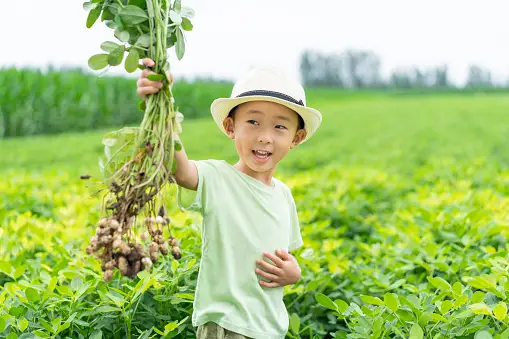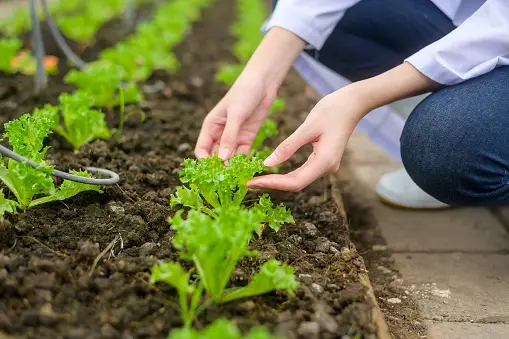10 Ideas for Enhancing Soil Health and Food Security In 2023

10 Ideas for Enhancing Soil Health and Food Security In 2023? Soil health plays a vital role in ensuring food security and sustainable agricultural practices. As we move into 2023, it becomes increasingly important to explore innovative ideas and practices that can enhance soil health and contribute to global food security.
Introduction
Healthy soil is the foundation of successful agriculture. It provides essential nutrients, supports plant growth, and contributes to ecosystem resilience. By implementing the following ideas, farmers can enhance soil health and promote long-term food security.
Organic Farming Practices
Organic farming techniques focus on maintaining and improving soil health through the use of natural inputs and practices. By avoiding synthetic fertilizers and pesticides, organic farming reduces chemical contamination, improves soil structure, and enhances biodiversity.
Crop Rotation and Diversification
Crop rotation involves systematically alternating the crops grown in a particular field over time. This practice helps break pest and disease cycles, improves soil fertility, and reduces the risk of nutrient depletion. Diversification, on the other hand, involves growing a variety of crops in the same field to promote ecological balance and increase resilience to climate change.
Conservation Tillage
Conservation tillage minimizes soil disturbance during planting and cultivation. This practice helps reduce erosion, preserve soil structure, and increase water infiltration. By leaving crop residue on the soil surface, conservation tillage also enhances organic matter content and nutrient availability.
Cover Crops
Cover crops are non-commercial crops grown primarily to protect and improve the soil. These crops are planted between cash crops to prevent erosion, suppress weeds, and improve soil fertility. Cover crops also enhance microbial activity, fix nitrogen, and increase organic matter content.
Read More: Top 10 Herbal Medicine Facts in 2023
Composting and Soil Amendments

Composting is a natural process of decomposing organic materials, such as crop residues and manure, into nutrient-rich humus. Adding compost to the soil improves its structure, water-holding capacity, and nutrient availability. Additionally, the use of other soil amendments like biochar, rock dust, and organic fertilizers can further enhance soil health.
Precision Agriculture and Digital Technologies
Precision agriculture utilizes advanced technologies like GPS, sensors, and drones to optimize farm management practices. By precisely applying fertilizers, irrigation, and other inputs, farmers can reduce resource wastage, minimize environmental impact, and improve soil health. Digital tools also provide real-time monitoring and data analysis, enabling farmers to make informed decisions for sustainable land management.
Agroforestry and Silvopasture Systems
Agroforestry integrates trees, crops, and livestock in a harmonious system. Planting trees on agricultural land helps prevent soil erosion, provides shade, and improves nutrient cycling. Silvopasture systems combine trees, forage crops, and livestock grazing, offering multiple benefits such as carbon sequestration, increased biodiversity, and enhanced soil fertility.
Water Management Strategies
Efficient water management is crucial for soil health and food security. Implementing practices like drip irrigation, rainwater harvesting, and water-efficient irrigation systems can conserve water resources and prevent soil erosion. Proper drainage systems and erosion control measures also play a significant role in maintaining soil health.
Farmer Training and Education

Providing farmers with training and education on sustainable agricultural practices is essential for enhancing soil health and food security. Access to knowledge about soil conservation, best management practices, and the latest scientific advancements empowers farmers to make informed decisions and implement effective strategies on their farms.
Conclusion
Enhancing soil health is a fundamental step towards ensuring food security in 2023 and beyond. By adopting organic farming practices, crop rotation, conservation tillage, cover cropping, composting, and utilizing digital technologies, farmers can improve soil fertility, reduce environmental impact, and promote sustainable agriculture. Additionally, implementing agroforestry systems, efficient water management strategies, and providing farmer training and education are crucial for long-term soil health and food security.
FAQs
Q: What are the benefits of organic farming?
Organic farming offers numerous benefits such as improved soil health, reduced chemical contamination, enhanced biodiversity, and increased resilience to climate change.
Q: How does crop rotation help soil health?
Crop rotation helps break pest and disease cycles, improve soil fertility, and reduce the risk of nutrient depletion in the soil.
Q: What is conservation tillage?
Conservation tillage is a practice that minimizes soil disturbance during planting and cultivation, helping to reduce erosion, preserve soil structure, and increase water infiltration.
Q: What are cover crops, and why are they important?
Cover crops are non-commercial crops grown primarily to protect and improve the soil. They help prevent erosion, suppress weeds, enhance microbial activity, fix nitrogen, and increase organic matter content.
Q: How can precision agriculture benefit soil health?
Precision agriculture utilizes advanced technologies to optimize farm management practices, reducing resource wastage, minimizing environmental impact, and improving soil health through precise application of inputs.











